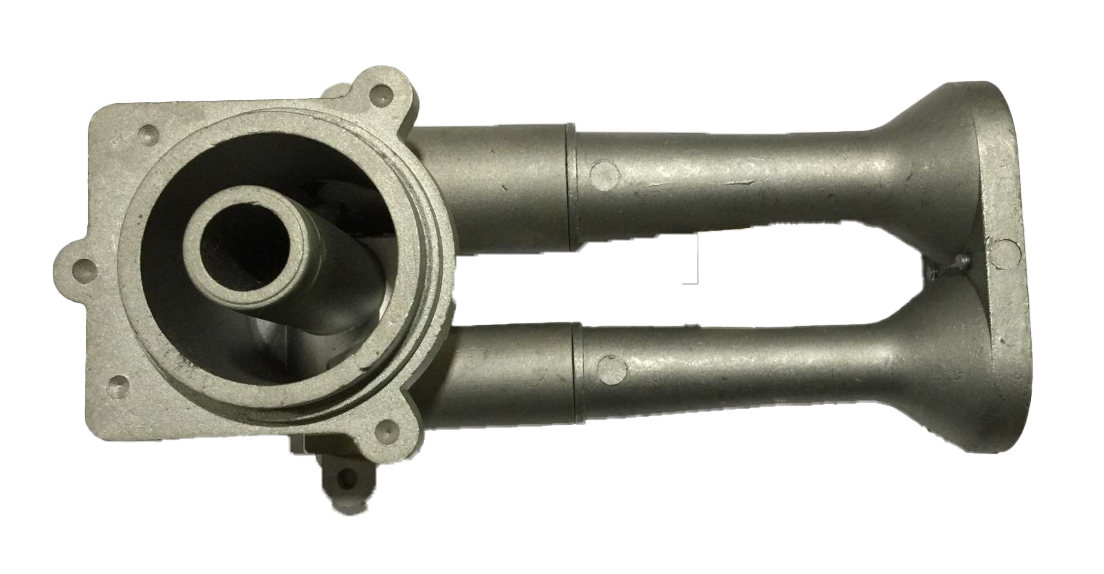E-mail-formatfejl
emailCannotEmpty
emailDoesExist
pwdLetterLimtTip
inconsistentPwd
pwdLetterLimtTip
inconsistentPwd

Nyheder
The Problem of Poor Air Tightness of Aluminum Alloy Die Castings
Many die-casting hardware factories hope to solve the problem of poor air tightness of aluminum alloy die-castings as soon as possible and find out possible defects. Poor air tightness of die casting refers to the leakage inside and outside the casting when a certain pressure is applied to the die casting, resulting in a pressure drop. If this type of die casting is used, it is likely to cause problems such as oil leakage, air leakage, and water leakage. Poor air tightness is one of the difficult problems in die casting defects for many reasons. Here are three reasons to analyze:

Causes of air leakage in die casting
Gas in the raw material
The commonly used die-casting material is aluminum alloy (this article only takes aluminum alloy die-casting as an example). In the production of die casting, since the main component of the gas in the aluminum liquid is hydrogen, the hydrogen content in the aluminum alloy liquid is directly related to the number of pores in the casting. Porosity in castings not only reduces the mechanical properties and corrosion resistance of the alloy but also reduces air tightness.
At present, the main method to remove liquid aluminum gas is to inject inert gas such as nitrogen into aluminum alloy or add solid degassing agent, etc., so that hydrogen dissolved in liquid aluminum diffuses into bubbles. When the bubbles rise to the surface of the liquid aluminum, the bubbles collapse and the hydrogen escapes into the atmosphere, thus achieving the purpose of removing the hydrogen.
Influence of mold pouring and unloading system
The casting system determines the design quality of the die-casting mold, and is also the main factor that determines the quality of the die-casting in the later production. As a system, it is composed of many elements and its purpose is to make the alloy liquid fill the cavity with the proper flow state
At the same time, the emissions from the gas system can be maximized. Therefore, the die-casting mold should have a good gating system and overflow system.
Since the flow channel is opened on the dense side, the molten aluminum will eventually return to the dead corner in the upper left corner, and eddy currents and rolling phenomena will occur. As a result, the mass on the left side of the casting will be significantly reduced and the air tightness will also be reduced.
The design of the runners makes the aluminum liquid in each runner basically fill at the same time, which makes up for the deficiency of some castings and improves the overall quality of the castings in a balanced manner. Therefore, in mold manufacturing, the design of the runner should try to use multiple runners, the aluminum flow should be consistent with the casting direction, and collisions should be avoided as much as possible to reduce the occurrence of eddy currents and air entrainment caused by filling obstacles. At the same time, multiple nozzles should be filled at the same time, so that one or more aluminum liquids cannot return to the dead end at the last end to generate eddy currents. In addition, the collection of slag bags and exhaust pipes by the die-casting mold should also be reasonably distributed. Proper flow conditions are what guarantees collisions, air entrapment, and velocity instability in liquid flow. Otherwise, no matter how good the exhaust system is, the air still cannot be exhausted.
From the above analysis, it can be seen that various defects of castings caused by poor pouring and unloading systems are the direct cause of poor air tightness of castings.
Equipment performance
Air holes, shrinkage holes and cold insulation in die castings are also major causes of air leakage. For products with strict air tightness requirements, it is necessary to select a suitable die-casting model.
At present, the die-casting machine basically adopts three-stage injection molding in the production of aluminum alloy die-casting. In the first stage of injection molding, the speed of the injection punch is slow, which is conducive to the pressure chamber of gas extrusion; in the second stage, the speed of the internal jet is very fast, the molten aluminum will basically fill the cavity. At the same time, the position of the secondary injection speed is too early, and the casting is prone to defects such as porosity. If the starting position of the secondary injection speed is too late, the casting is prone to defects such as cold segregation. In general, the metal liquid in the material cup at the starting position of the secondary injection velocity has just reached the ideal entrance of the inner door. Therefore, this stage is the key to generating stomata, so the higher the speed, the easier it is to generate vortices and form stomata.
To reduce shrinkage inside the casting and fill the leak channel, the first step is to remove as much gas as possible from the pressure chamber. In this process, the main idea to control the porosity of the die casting is to control the injection rate of the first and second stages and the switching points of the first and second stages. On the premise of meeting the requirements of casting forming or surface quality, the injection speed of the first stage should be as low as possible, and high speed should not be started before the aluminum alloy reaches the inner runner. Through the improvement of the above process, the air tightness of the box is greatly improved.
Conclusion
For more information about die casting process in tamil,preparation of die casting mould,die casting design calculations, we are glad to answer for you.

